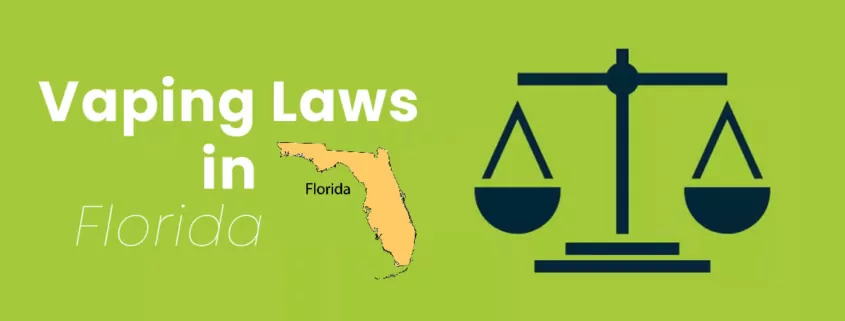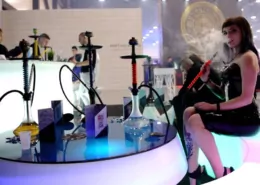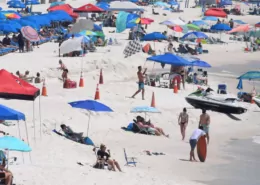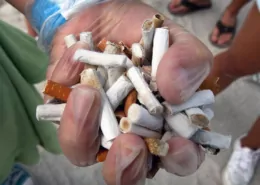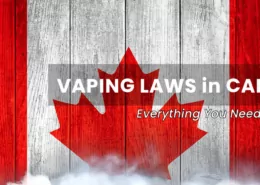Vaping Laws in Florida – Is it Legal to Vape in Florida?
Updated: May / 2025
Your guide to Florida’s vape laws: HB 1007 disposable vape restrictions, age 21 (military 18+), public use bans, and no state vape tax.
Florida’s sunny skies and vibrant lifestyle attract millions, and vaping has become a noticeable part of its culture. However, navigating the rules around e-cigarettes and vaping products in the Sunshine State can feel as complex as a cloud of flavored vapor. Regulations keep changing, shaped by public health concerns, efforts to protect young people, and federal rules. This guide clears the air, offering a detailed look at Florida’s vaping laws for 2025, with a special focus on recent legislative changes like HB 1007, to help both consumers and businesses stay informed and compliant.
Is Vaping Legal in Florida? The Basics
Yes, adults can legally vape nicotine products in Florida. But this isn’t a free-for-all; there’s a set of restrictions and rules that everyone in the vaping scene, from casual users to shop owners, needs to know.
Age Restrictions: Strictly 21 and Over
A key part of Florida’s vaping rules is the age limit. Following the federal Tobacco 21 law enacted in December 2019, the minimum legal age to purchase, possess, or use vaping products (including e-cigarettes, vape pens, and e-liquids) in Florida is 21. Retailers cannot sell these items to anyone under 21 and must use solid age verification methods. Information on these federal changes can often be found on resources like the FDA’s announcements and Tobacco21.org.
One exception, under Florida Statute §569.41, allows active-duty military personnel to legally purchase vaping products at age 18. This exception has drawn criticism from public health advocates, such as those at Tobacco Free Florida, who point out that most adult smokers start using nicotine before turning 21. If you’re under 21 (and not active-duty military), possessing vaping products is illegal and can lead to fines or mandatory educational programs.
The HB 1007: Reshaping Florida’s Vape Market
A major recent change in Florida’s vaping scene is House Bill 1007 (HB 1007), signed into law by Governor Ron DeSantis on April 29, 2024. This law mainly targets single-use nicotine vapes, often called disposable vapes, which health officials say are heavily marketed to and used by minors because of their colorful designs and sweet flavors. Details and analyses of the bill can be found on the Florida Senate website.
Prohibited Products Directory and Enforcement
HB 1007 gives Florida’s Department of Legal Affairs, under the Attorney General, the power to develop and maintain a “Prohibited Products Directory.” This directory will list single-use nicotine vaping devices deemed attractive to minors. The Attorney General’s office has provided information on this initiative. Here are the key dates for HB 1007:
- October 1, 2024: The restrictions on single-use devices officially take effect.
- January 1, 2025: The Department of Legal Affairs must publish the initial Prohibited Products Directory.
- March 1, 2025: Manufacturers of products listed in the directory will face a $1,000 daily fine per prohibited product if they fail to remove these items from the Florida market. Retailers and wholesalers also have a 60-day window from when a product is listed to sell through or remove existing inventory before facing potential seizure of non-compliant products.
Importantly, HB 1007 deliberately exempts open-system vaping devices (refillable mods and tanks) and their associated e-liquids. This splits the market, aiming to cut youth access to appealing disposables while keeping options open for adults who prefer open systems. This more targeted approach was chosen after earlier ideas considered restricting all non-FDA-approved products, a move that would have severely limited what’s available.
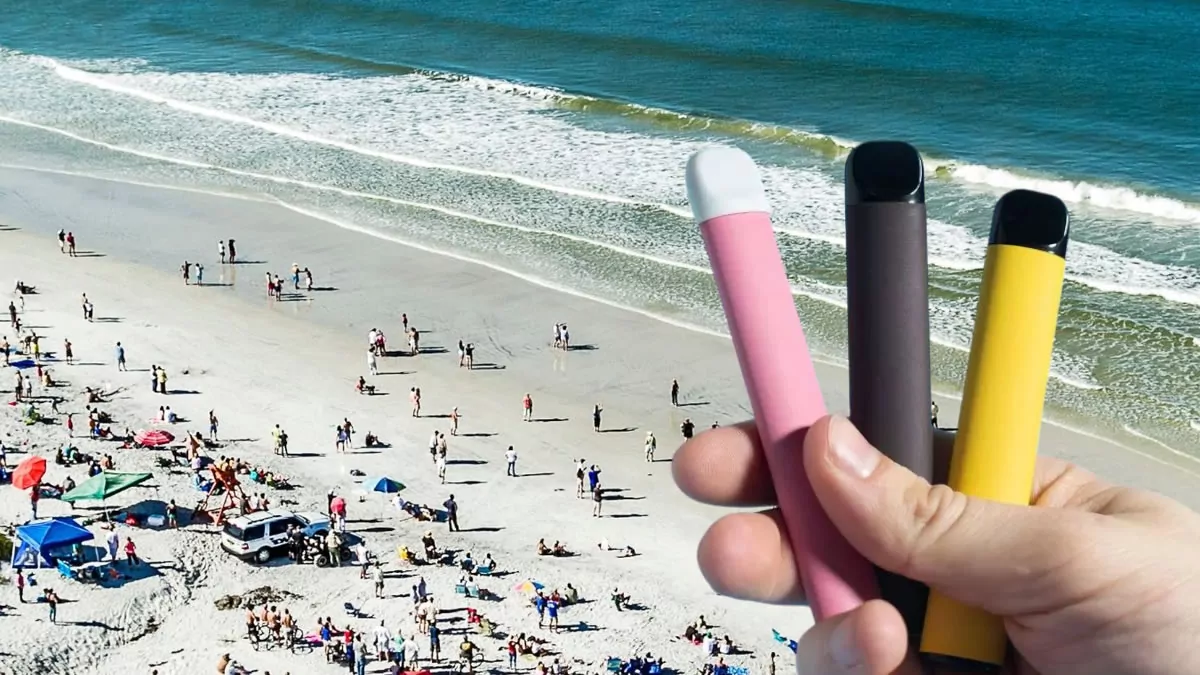
Where Can You Legally Vape in Florida?
Florida law, mainly through the Florida Clean Indoor Air Act (FCIAA), spells out where you can and can’t vape. In 2018, Florida voters approved Constitutional Amendment 9. Effective July 1, 2020, this change added vaping devices to the FCIAA, treating them like traditional smoking. Information and fact sheets about the FCIAA are available from Tobacco Free Florida and the Florida Statutes directly.
Prohibited Vaping Locations
The FCIAA (specifically Florida Statute §386.212) bans vaping in most enclosed indoor workplaces. This means you usually can’t vape in:
- Restaurants (unless they are standalone bars not serving food)
- Retail stores
- Offices
- Public transportation
- School grounds (at any time, as per policies often outlined by organizations like the National Association of State Boards of Education)
Some sources say vaping is also banned within 25 feet of doorways, windows, or air intakes of these places, but this can vary by local rules and building codes.
Exceptions to Indoor Vaping Bans
The FCIAA allows a few exceptions for indoor vaping:
- Private Residences: Vaping is allowed in private homes, as long as they aren’t being used for commercial purposes like childcare, adult care, or healthcare services.
- Standalone Bars: Places that primarily serve alcohol and do not serve food may permit vaping.
- Retail Vape Shops: Dedicated vape shops can let patrons test and use vaping products inside. However, these shops usually must get a large part of their income (often 50% or more) from selling vaping products and related gear.
- Designated Hotel Smoking Rooms: Some hotels may have specific rooms where smoking and vaping are allowed.
Remember, local cities and counties can have stricter vaping rules than the state. Resources like the Florida League of Cities may offer insight into local differences. Always check local signs and rules, such as those for Alachua County or Miami-Dade County.
Regulations on Vaping Product Sales and Retailers
Florida has several rules for selling vaping products, aimed at consumer safety and preventing underage sales.
Licensing and Location
Retailers selling vapes in Florida need the right licenses. While not a clear statewide rule in all sources, some local rules or practices might require vape shops to be a certain distance (like 1,000 feet) from schools or places kids frequent. Businesses should check local zoning and licensing rules.
Online Sales and Delivery
Florida law doesn’t ban online sales or delivery of vapes. But online sellers must use reliable age verification systems to make sure buyers are 21 or older (or 18+ for active-duty military). This check usually happens during checkout.
Advertising and Packaging
Vape ads can’t specifically target minors. This includes limits on certain types of media and marketing tactics. Packaging also needs clear warnings about nicotine and vaping health risks, following federal rules for ingredients and labels. Advocacy groups like CASAA often track these kinds of regulations.
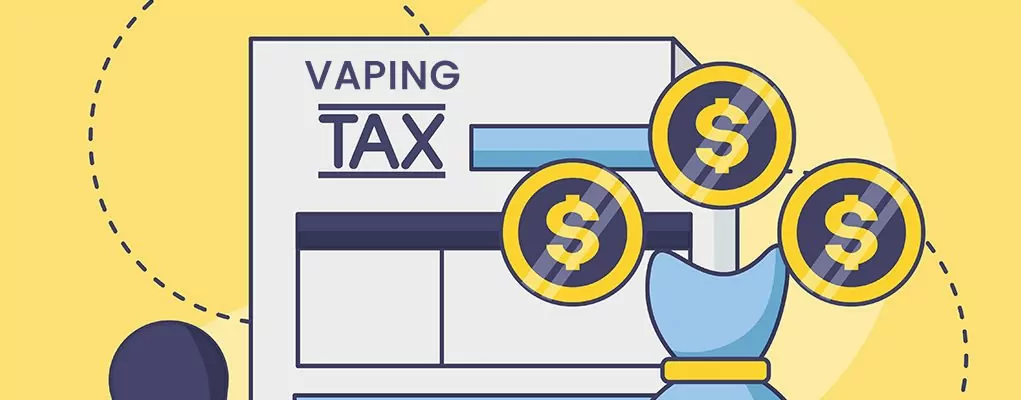
Taxation of Vaping Products in Florida
Unlike most U.S. states, Florida currently doesn’t have a specific state excise tax on vaping products (e-liquids or devices). This is different from the heavy excise taxes Florida puts on other tobacco products, like an 85% tax on the wholesale price of smokeless tobacco/snuff. You can find information on state-by-state vaping taxes from organizations like the Tax Foundation and the CDC. This lack of a vape tax has made Florida a fairly attractive market for vape sellers and users, though this could change with future laws, especially as federal rules evolve.
Federal Oversight: FDA’s Role
Besides state laws, all vapes sold in the U.S., including Florida, fall under U.S. Food and Drug Administration (FDA) regulation. Key parts of FDA oversight are:
- Premarket Tobacco Product Applications (PMTAs): Manufacturers must submit PMTAs for their products, showing they meet public health standards before they can be legally sold. So far, very few vapes have full FDA marketing approval.
- Flavor Restrictions: Federal law bans the sale of prefilled closed-system vaping devices (pods, cartridges) in flavors other than tobacco or menthol. This federal rule affects product availability across the country. The FDA also takes enforcement actions against unauthorized products.
Florida’s new HB 1007, with its Prohibited Products Directory for single-use vapes, basically sets up a state-level approval system that will run alongside, and possibly clash with, the federal FDA process. General information on e-cigarette regulations can be found at the Public Health Law Center.
Health Concerns and Youth Protection Efforts
Florida’s vaping laws, like Tobacco 21 and HB 1007, stem from major public health worries, especially the sharp rise in youth vaping. Health officials point out:
- Neurocognitive Risks: Nicotine exposure before the brain fully develops (around age 25) can harm prefrontal cortex development, make mood disorders more likely, and lower impulse control. Research such as that found on PMC (PubMed Central) often details these risks.
- Appeal of Flavors: Studies, such as the 2020 Florida Youth Tobacco Survey, have tied fruit and dessert-flavored disposables to many underage vapers starting out.
- Secondhand Aerosol Exposure: Worries about what’s in secondhand vape aerosol and thirdhand nicotine residue on surfaces also lead to indoor vaping bans.
Vaping Cannabis in Florida: A Separate Legal Matter
It’s vital to know the difference between vaping nicotine and vaping cannabis. While having and using a vape pen for nicotine is legal for adults under these rules, vaping marijuana or THC-containing products without a valid medical marijuana authorization is illegal in Florida. It can be tough for law enforcement to tell nicotine and cannabis vapes apart just by looking or smelling them. However, if a vape pen contains cannabis or its concentrates, the person faces drug possession charges. Florida law often treats cannabis concentrates (common in vapes) more harshly than raw cannabis flower, possibly leading to felony charges even for small amounts.

ECIGATOR
Ecigator is one of the well-known vape brands spun off from FM Technology Co., Ltd, it’s an ISO-certified disposable vape manufacturer for OEMs, ODMs, and OBM since 2010. The founder team comes from top firms with more than 10 years of experience in the vaping industry and has devoted thousands of hours to providing users with a better and better experience.
Penalties for Violating Vaping Laws
Breaking Florida’s vaping laws brings serious penalties for both people and businesses. You can find specific penalties for selling to minors in Florida Statute §569.14 and related rules like §877.112 about nicotine products and minors.
- Individuals:
- Underage (non-military) possession or purchase: Fines (e.g., $25), mandatory community service, or educational programs. Repeat offenses could mean driver’s license suspension.
- Giving vapes to minors: Fines up to $500.
- Vaping in prohibited areas: Fines up to $500.
- Businesses:
- Selling to underage individuals: Large fines (e.g., $500-$1,000 for a first offense), possible loss of license to sell tobacco/vaping products.
- Not following HB 1007 (e.g., selling products on the Prohibited Directory after the grace period): Daily fines of $1,000 per product, seizure of illegal products.
The Future of Vaping Regulation in Florida
The vaping industry and its rules are always changing. Florida lawmakers will probably keep watching public health data, youth vaping trends, and federal moves. Organizations like the Network for Public Health Law often track such evolving regulatory measures. Future laws might include:
- Tighter controls on a wider range of flavored products.
- A state excise tax on vaping products.
- More limits on public use or retail sales.
Keeping up with ongoing law discussions and advocacy is key for everyone in Florida’s vaping community.
Conclusion: Vape Responsibly and Stay Informed
Florida’s vaping laws try to balance adult choice with the need to protect public health, especially for young people. HB 1007 is a big step in regulating available products, particularly targeting disposable vapes popular with minors. For vapers, knowing age limits and where you can vape is key to using responsibly. For businesses, strictly following sales rules, age checks, and the new HB 1007 requirements is vital for legal operation. As laws change, staying alert and committed to following the rules will help create a safer and more responsible vaping scene in Florida.
Frequently Asked Questions (FAQs)
-
What is the legal age to vape in Florida in 2025?
The legal age to buy, have, and use vaping products in Florida is 21. An exception exists for active-duty military personnel, who can buy at age 18, as per Florida law.
-
Are flavored vapes banned in Florida?
Florida’s HB 1007 targets single-use (disposable) vapes considered “attractive to minors,” many of which are flavored. These will be listed on a Prohibited Products Directory starting January 1, 2025, and effectively banned from sale. The law does not apply to flavored e-liquids for open-system (refillable) devices. Also, federal law limits flavors in prefilled closed-system pods to tobacco and menthol.
-
Can I vape in public parks or on beaches in Florida?
While state law (FCIAA) mainly covers enclosed indoor workplaces, local cities and counties can, and often do, have stricter rules for public outdoor spots like parks and beaches. Always check local rules and posted signs.
-
Is it legal to vape in my car in Florida?
Yes, you can generally vape in your private car. But if a passenger is under 21, some specific local rules might apply, and distracted driving laws are always a top concern.
-
Does Florida tax vaping products?
As of early 2025, Florida doesn’t have a specific state excise tax on vapes (e-liquids or devices), unlike many other states. Comparative data is often available from sources like the CDC or the Public Health Law Center.
-
What is HB 1007 in Florida?
HB 1007 is a Florida law signed in April 2024 that limits the sale of single-use (disposable) nicotine vaping devices considered attractive to minors. It sets up a Prohibited Products Directory, with enforcement and fines for non-compliant products starting in 2025. Official information can be found on the Florida Senate website.
-
Can I order vapes online in Florida?
Yes, online sales of vaping products to Florida residents are allowed, but sellers must use reliable age verification methods to make sure the buyer is of legal age (21+, or 18+ for active military).
- Austria Plans to Ban Disposable E-Cigarettes - August 5, 2025
- Vaping vs. THC Drinks: Which Cannabis Option Is Right for You? - August 4, 2025
- Colombia’s New Vape Law: A Reality Check on Enforcement - August 4, 2025

